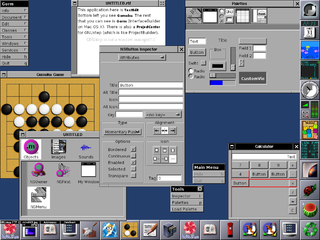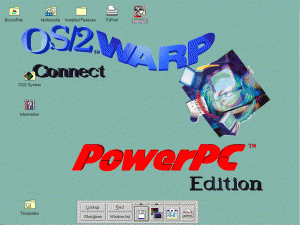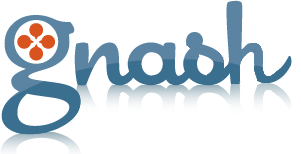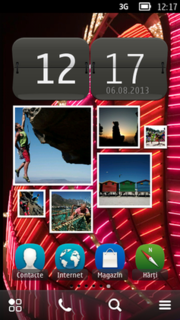Java Platform, Micro Edition or Java ME is a computing platform for development and deployment of portable code for embedded and mobile devices. Java ME was formerly known as Java 2 Platform, Micro Edition or J2ME. As of December 22, 2006, the Java ME source code is licensed under the GNU General Public License, and is released under the project name phoneME.

GNUstep is a free software implementation of the Cocoa Objective-C frameworks, widget toolkit, and application development tools for Unix-like operating systems and Microsoft Windows. It is part of the GNU Project.
Carbon was one of two primary C-based application programming interfaces (APIs) developed by Apple for the macOS operating system. Carbon provided a good degree of backward compatibility for programs that ran on Mac OS 8 and 9. Developers could use the Carbon APIs to port (“carbonize”) their “classic” Mac applications and software to the Mac OS X platform with little effort, compared to porting the app to the entirely different Cocoa system, which originated in OPENSTEP. With the release of macOS 10.15 Catalina, the Carbon API was officially discontinued and removed, leaving Cocoa as the sole primary API for developing macOS applications.
A computing platform or digital platform is an environment in which a piece of software is executed. It may be the hardware or the operating system (OS), even a web browser and associated application programming interfaces, or other underlying software, as long as the program code is executed with it. Computing platforms have different abstraction levels, including a computer architecture, an OS, or runtime libraries. A computing platform is the stage on which computer programs can run.

The S60 Platform is a software platform for smartphones that runs on top of the Symbian operating system. It was created by Nokia based on the 'Pearl' user interface from Symbian Ltd. It was introduced at COMDEX in November 2001 and first shipped with the Nokia 7650 smartphone. The platform has since seen 5 updated editions. Series 60 was renamed to S60 in November 2005.

WebObjects is a Java web application server and a server-based web application framework originally developed by NeXT Software, Inc.
The following outline is provided as an overview of and topical guide to software engineering:

UIQ was a software platform based upon Symbian OS, created by UIQ Technology AB. It is a graphical user interface layer that provides additional components to the core operating system, to enable the development of feature-rich mobile phones that are open to expanded capabilities through third-party applications.

Workplace OS is IBM's ultimate operating system prototype of the 1990s. It is the product of an exploratory research program in 1991 which yielded a design called the Grand Unifying Theory of Systems (GUTS), proposing to unify the world's systems as generalized personalities cohabitating concurrently upon a universally sophisticated platform of object-oriented frameworks upon one microkernel. Developed in collaboration with Taligent and its Pink operating system imported from Apple via the AIM alliance, the ambitious Workplace OS was intended to improve software portability and maintenance costs by aggressively recruiting all operating system vendors to convert into Workplace OS personalities. In 1995, IBM reported that "Nearly 20 corporations, universities, and research institutes worldwide have licensed the microkernel, laying the foundation for a completely open microkernel standard." At the core of IBM's new unified strategic direction for the entire company, the project was intended also as a bellwether toward PowerPC hardware platforms, to compete with the Wintel duopoly.

Gnash is a media player for playing SWF files. Gnash is available both as a standalone player for desktop computers and embedded devices, as well as a plugin for several browsers. It is part of the GNU Project and is a free and open-source alternative to Adobe Flash Player. It was developed from the gameswf project.
Carbide.c++ is a software development tool for C++ development on Symbian OS. It is used to develop phones that use the OS, as well as applications that run on those phones. It is based on the Eclipse IDE platform enhanced with extra plug-ins to support Symbian OS development. The product is provided by the Symbian Foundation under an open source model. In April 2009, Nokia transferred Carbide.c++ and many other software developer tools to the Symbian Foundation. Members of the Symbian community now manage and contribute code to the Carbide.c++ product.

Microsoft Silverlight is a discontinued application framework designed for writing and running rich web applications, similar to Adobe's runtime, Adobe Flash. A plugin for Silverlight is still available for a very small number of browsers. While early versions of Silverlight focused on streaming media, later versions supported multimedia, graphics, and animation, and gave support to developers for CLI languages and development tools. Silverlight was one of the two application development platforms for Windows Phone, but web pages using Silverlight did not run on the Windows Phone or Windows Mobile versions of Internet Explorer, as there was no Silverlight plugin for Internet Explorer on those platforms.
qmake is a utility that automates the generation of makefiles. Makefiles are used by the program make to build executable programs from source code; therefore qmake is a make-makefile tool, or makemake for short.

The Symbian Foundation was a non-profit organisation that stewarded the Symbian operating system for mobile phones which previously had been owned and licensed by Symbian Ltd. Symbian Foundation never directly developed the platform, but evangelised, co-ordinated and ensured compatibility. It also provided key services to its members and the community such as collecting, building and distributing Symbian source code. During its time it competed against the Open Handset Alliance and the LiMo Foundation.
P.I.P.S. is a term for Symbian software libraries that means, P.I.P.S. Is POSIX on Symbian OS. It is intended to help C language programmers in migration of desktop and server middleware, applications to Symbian OS based mobile smartphone devices.

Symbian is a discontinued mobile operating system (OS) and computing platform designed for smartphones. Symbian was originally developed as a proprietary software OS for PDAs in 1998 by the Symbian Ltd. consortium. Symbian OS is a descendant of Psion's EPOC, and was released exclusively on ARM processors, although an unreleased x86 port existed. Symbian was used by many major mobile phone brands, like Samsung, Motorola, Sony Ericsson, and above all by Nokia. It was also prevalent in Japan by brands including Fujitsu, Sharp and Mitsubishi. As a pioneer that established the smartphone industry, it was the most popular smartphone OS on a worldwide average until the end of 2010, at a time when smartphones were in limited use, when it was overtaken by iOS and Android. It was notably less popular in North America.
This is a list of devices that run on the Symbian platform mobile operating system, including their proprietary predecessors running on Symbian OS and EPOC.
EPOC is a mobile operating system developed by Psion, a British company founded in 1980. It began as a 16-bit operating system (OS) for Psion's own x86-compatible devices, and was later replaced by a 32-bit system for x86 and ARM. Psion licensed the 32-bit system to other hardware makers, such as Ericsson.








